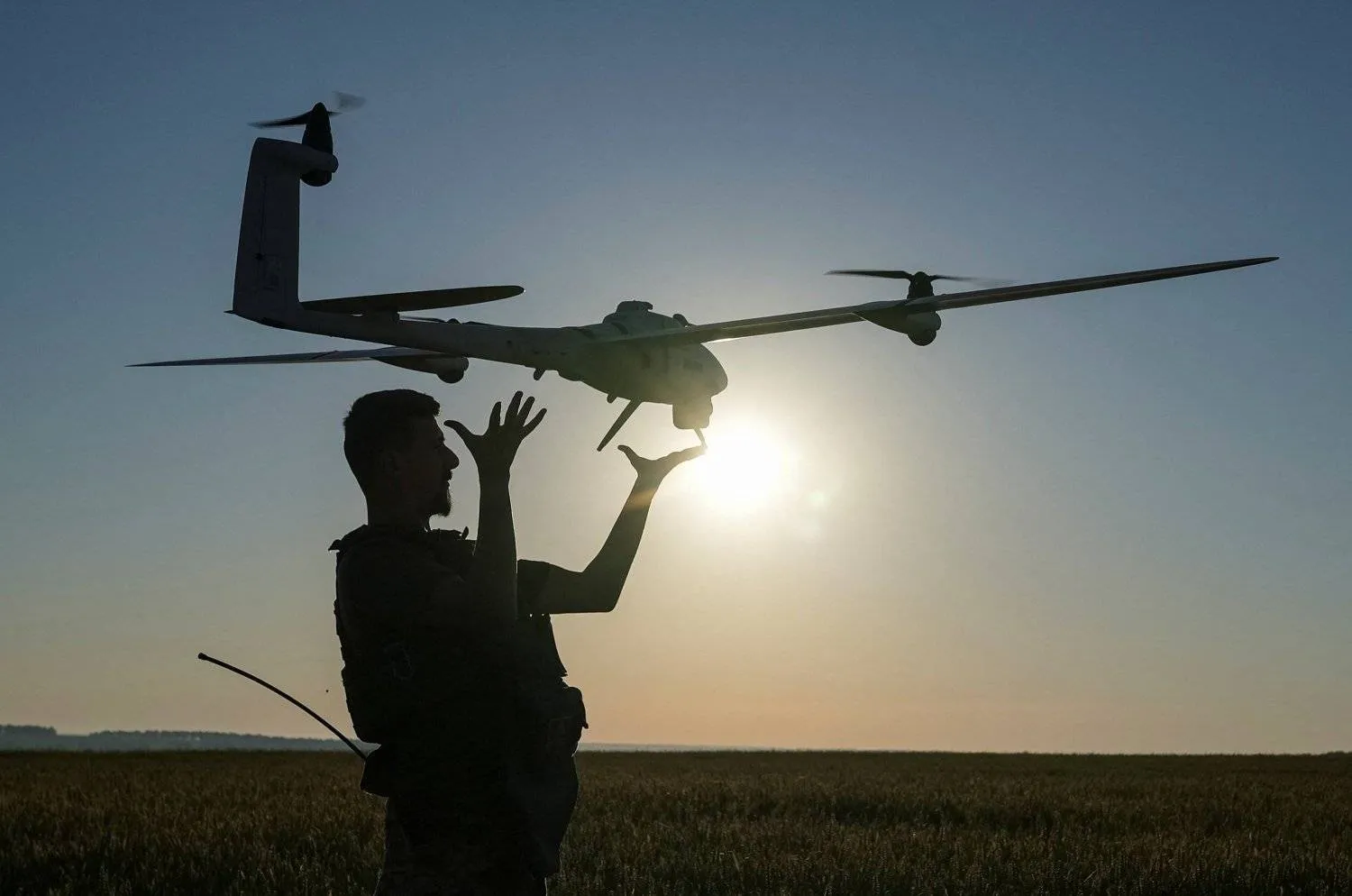Ukrainian forces destroyed 25 Russian attack drones out of 38 launched overnight, Ukraine's air force chief said on Thursday.
"Last night, the enemy used 38 Shahed-131/136 attack drones, attacking Ukrainian infrastructure in several areas, including the south of Odesa region and central Ukraine," Mykola Oleshchiuk said.
The air force chief said three other drones "were lost after crossing the state border with Romania". He gave no more details, Reuters said.
Romanian territory is just a few hundred meters from the Ukrainian Danube port of Izmail, in Odesa region, which was attacked by drones for the second night in a row.
Odesa governor Oleh Kiper said two people were wounded when drone debris hit a private house in Izmail district.
Authorities in the capital Kyiv and in the Zhytomyr region said those regions had also been targeted.
Zhytomyr's governor said that air defense systems hit most of the 10 aerial targets overnight, but drone debris damaged 10 private houses and one infrastructure facility.
The head of Kyiv's military administration, Serhiy Popko, said that drones attacked the capital from different directions, but all of them were destroyed by air defense forces on the approaches.
Popko said there were no reports of damage or casualties in Kyiv.
Authorities in the southern region of Kherson said that a man had been killed in the street in a separate attack after a drone dropped explosives on him.
Ukrainian troops regained control of much of the Kherson region in late 2022, but Russian forces still shell Ukrainian-held areas from positions on the eastern bank of the Dnipro River and launched drones.
Ukraine Destroys 25 of 38 Drones in Russian Attack

A Ukrainian serviceman belonging to the attack drones battalion of the Achilles, 92nd brigade, launches a mid-range reconnaissance type drone, Vector, for flying over positions of Russian troops, amid Russia's attack on Ukraine, in a Kharkiv region, Ukraine June 19, 2024. REUTERS/Inna Varenytsia

Ukraine Destroys 25 of 38 Drones in Russian Attack

A Ukrainian serviceman belonging to the attack drones battalion of the Achilles, 92nd brigade, launches a mid-range reconnaissance type drone, Vector, for flying over positions of Russian troops, amid Russia's attack on Ukraine, in a Kharkiv region, Ukraine June 19, 2024. REUTERS/Inna Varenytsia
لم تشترك بعد
انشئ حساباً خاصاً بك لتحصل على أخبار مخصصة لك ولتتمتع بخاصية حفظ المقالات وتتلقى نشراتنا البريدية المتنوعة







